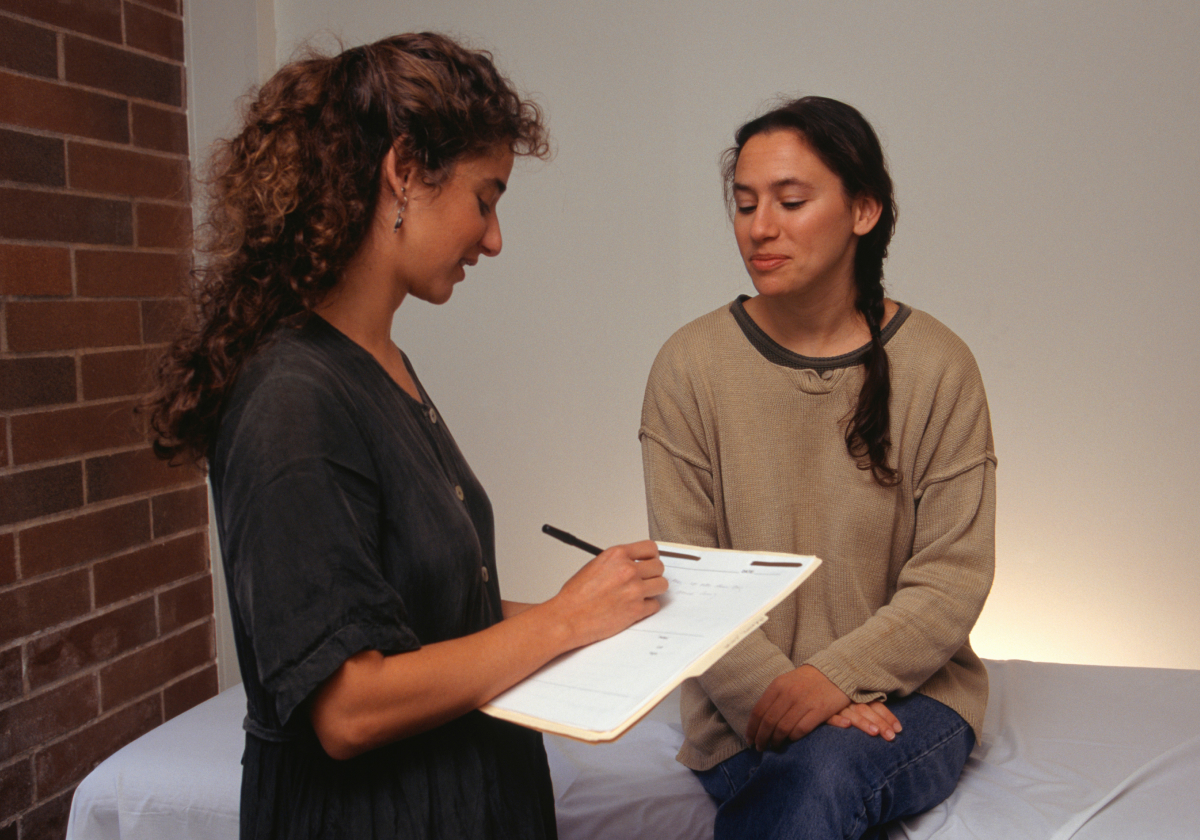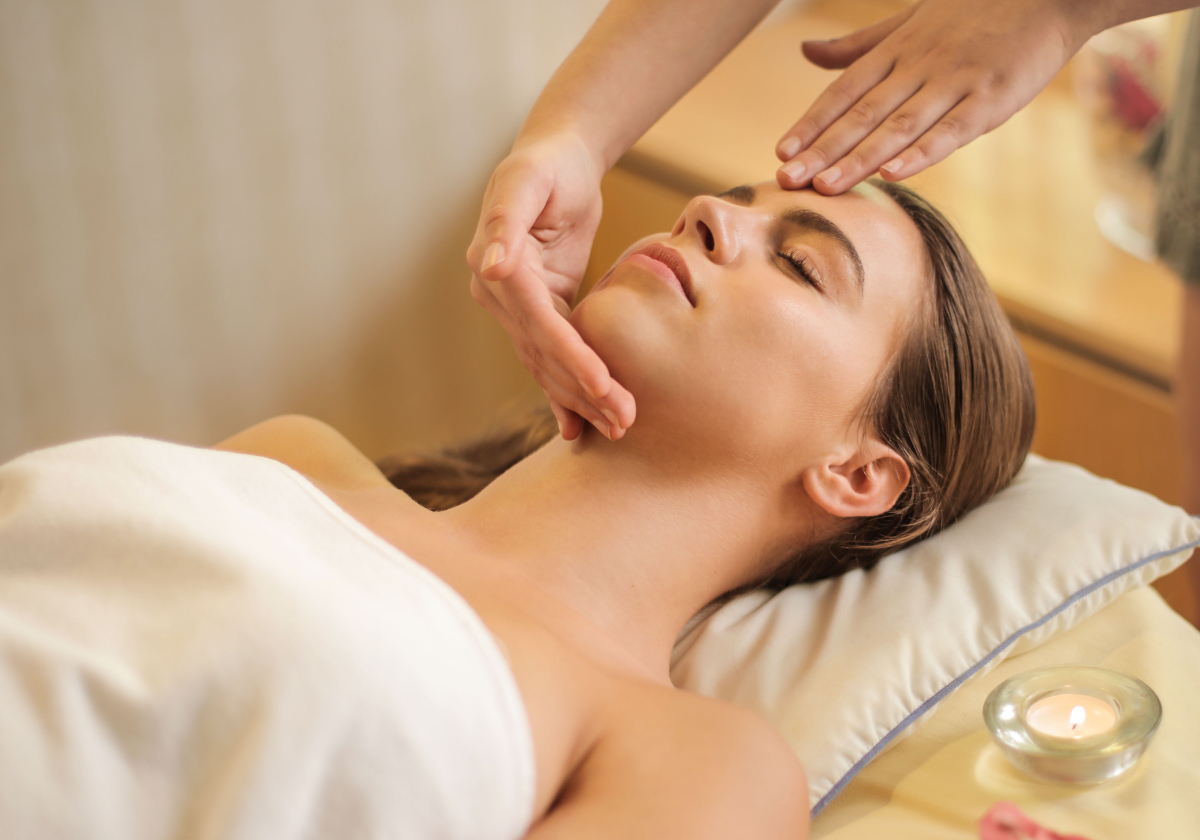Acupuncture For Depression: Does It Help With Depression 2024?

About half of Americans[1] will try some type of alternative treatment, like herbal remedies, acupuncture, or energy therapy at some point in their lifetime. These therapies range from chronic pain, digestive issues, headaches, infertility, weight loss, and even tobacco use.
Acupuncture, in particular, has more than 10 million[2] treatments administered each year in the U.S., making it appear that Western society is now appreciating this traditional Chinese medicine. Unfortunately, valid research proving its efficacy is hard to find. Research on acupuncture for depression, in particular, is still few and far between.
So while acupuncture is becoming more and more accepted for treating ailments, people are still wondering; does acupuncture work for depression?
Can Acupuncture Help With Depression?
In one meta-analysis of 64 studies,[3] the reduction in the severity of depression symptoms through acupuncture was difficult to declare. The majority of the studies reviewed used low-quality evidence and had various biases.
Either way, the evidence given did show a reduction in the severity of depression with acupuncture when the depression was compared to no treatment. Unfortunately, few studies followed up with patients after treatment was complete. They also didn’t assess other quality of life outcomes, making it difficult to know if acupuncture is effective for depression.
Research on acupuncture for anxiety and depression is still in its early stages and comes with many difficulties. Creating methods to test its efficacy for treating depression while carrying out an investigation free of bias has its challenges, such as
- Creating a double-blind study; the practitioner will be aware if they’re doing the correct acupuncture treatment or not.
- Avoiding cultural bias; it’s more likely people from the East will report positive effects.
- Creating a control group or randomized controlled trials; all groups will need needles.
- Avoiding the placebo effect[4] since it’s largely based on the mind-body connection. In general, many people who believe they’re being treated, whether they are or not, can improve.
- Creating specific and standardized depression-targeted acupuncture.
Currently, standard depression treatments focusing on talk therapy are still the most effective[5] methods to treat depression. Major depression should not be taken lightly and should never be ignored. If you or someone you know is experiencing depressive symptoms, reach out to a mental health professional online or in-person to help alleviate symptoms.
What Is Acupuncture?
Acupuncture is a type of medical treatment[6] that uses small needles or pressure on specific body points. The chosen points correlate to a specific emotion or pain the person is experiencing.
According to its idealogy, physical pain is directly tied to energy flow, known as qi, that resides in the body. The foundation of qi is based on five elements, with each organ corresponding to a specific emotion:
- Fire — joy — heart.
- Wood — anger — liver.
- Water — fear — kidney.
- Earth — worry — spleen.
- Metal — sadness — lungs.
Where overall wellness requires a connection between each element, a blockage in any of these areas can lead to physical or emotional pain. Therefore, by releasing blocked energy through needles that open the flow, health can be restored.
The History And Philosophy Behind Acupuncture
The origins of acupuncture[6] come from ancient Chinese medicine. It has philosophical principles from Confucianism and Taoism and focuses on the flow of the yin and yang dichotomy.
Unlike traditional Western medicine, traditional Chinese medicine has taken the mind-body connection into account since its inception. Now, more and more research[7] is uncovering that this connection is real and should not be ignored. Just think of countless studies on the placebo effect[8] — what you believe has the power to change your physiology.
How It Works
Getting acupuncture can be a pleasant and almost meditative experience. The procedure[9] is often done in a quiet and comfortable setting, helping you to feel as relaxed as possible. These are some of the steps and what to expect if you decide to get acupuncture.
Find A Certified Acupuncturist

Before scheduling a visit, be sure to research and find a certified acupuncture practitioner. You can check if their training and credentials are available on their website or ask them specifically to show you their certificates. Most states in the U.S. require nonphysician acupuncturists to pass an exam with the National Certification Commission for Acupuncture and Oriental Medicine.
You can explain your situation and what you’d like help with and see if they feel they can help. You can also ask your doctor about acupuncture before making a visit and search online for success rates for your condition.
Costs vary greatly depending on where you live and the experience of your practitioner. Find out if your treatment can be covered by your health insurance company.
Have An Initial Interview

In your initial session, you’ll sit with your acupuncturist for 10-15 minutes to discuss why you’re there and what areas you’d like to focus on. They’ll dive in deeper on this first session, getting to know a bit about you; your personal history, any stressors you’re facing, current aches or chronic pain, and your medical history.
Once the acupuncturist feels they have a good understanding of your situation, you’ll remove your socks and shoes and move to the padded table to begin the treatment.
Prepare For The Treatment

You’ll lie on a massage-like table covered by a towel to keep yourself warm. The practitioner will likely begin by looking at your tongue to note its color, shape, and coating. With their hand, they’ll also test the strength, rhythm, and quality of the pulse in your wrist. They may also closely examine the parts of your body where you’re experiencing pain.
After assessing different body parts, the acupuncturist will begin to insert needles into specific areas. They may put the needles in strategic acupuncture points for depression and anxiety or specific areas correlated to any additional physical pain mentioned.
If you’re usually nervous around needles, don’t worry. Acupuncture needles aren’t your standard physician’s needle. They’re quite thin and cause minimal discomfort. Many people don’t even notice when they’re inserted. You can expect anywhere from 5-20 needles, depending on your situation.
Rest As The Treatment Does Its Work

Once the needles are in place, you can comfortably relax to the meditative spa music for anywhere from 10-50 minutes. The practitioner will decide the amount of time after assessing your needs.
Each practitioner works quite differently, with some who are also Reiki certified using the rest period to do Reiki on certain parts of your body, while others leave the room and let you rest alone. When researching, you can also ask if they’re Reiki certified and if you’re interested in a dual type of energy treatment.
Some acupuncturists may also gently twirl the needles or apply heat or mild electrical pulses to the needles. You should not feel any pain from the needles once they’ve been put in place, so be sure to mention any discomfort to your practitioner so they can remove and reposition the needle.
Once they’ve determined enough time has passed, they’ll carefully remove the needles while you continue to lay still and relax. Just as most people don’t feel the needle go in, the removal is also usually painless and goes unnoticed.
Talk About How It Went

Once the needles have been removed and you’ve dressed, you should talk briefly with your practitioner. This is especially important after the initial visit to ensure you’re feeling well and to mention any sensations that may have appeared. You can discuss the next steps for moving forward with the treatment, as well.
Keep in mind acupuncture doesn’t usually offer immediate pain relief. It can take weeks before you notice any difference, depending on the issue. If you’ve chosen a Reiki-certified acupuncturist, the session might go quite differently. You may notice sensations or relief, but this depends greatly on the individual and practitioner and isn’t guaranteed.
Are There Any Side Effects?
Some risks are associated with acupuncture, but mostly for people with a condition, such as a bleeding disorder, infection, pacemaker, or pregnant women.
For healthy adults, there are few reported side effects.[10] The most common ones are soreness and minor bleeding or bruising at the puncture point. Some people may feel slightly drowsy, nauseous, dizzy, or faint, as well. If at any point during the session you feel a negative side effect appearing, let your acupuncturist know.
Besides the few side effects reported, it’s mostly a safe procedure. A certified acupuncture practitioner must also always use disposable, single-use sterile needles to avoid infection. Either way, it’s always best to speak with your doctor before trying alternative treatments, especially if you have any medical conditions or medications.
Summary: Is Acupuncture Worth Trying For Depression?
There aren’t enough valid and reliable studies to confirm that acupuncture for depression and anxiety is effective. However, people who feel as though it may work for them may benefit from the procedure due to the placebo effect. The length of time needed, cost and complementary treatment options should also be considered.
If you or someone you know suffers from depression, research[5] has shown the greatest efficacy of the standard depression treatment is talk therapy. Reaching out to a mental health professional to begin regular therapy sessions is most likely to reduce depression symptoms and recurrence of depression. At least 70%[11] of those with major depressive disorder can recover with proper treatment, making it the best choice.
+ 11 sources
Health Canal avoids using tertiary references. We have strict sourcing guidelines and rely on peer-reviewed studies, academic researches from medical associations and institutions. To ensure the accuracy of articles in Health Canal, you can read more about the editorial process here
- Funk, C. (2017). 2. Americans’ health care behaviors and use of conventional and alternative medicine. [online] Pew Research Center Science & Society. Available at: https://www.pewresearch.org/science/2017/02/02/americans-health-care-behaviors-and-use-of-conventional-and-alternative-medicine/
- Jishun, J. and Mittelman, M. (2014). Acupuncture: Past, Present, and Future. Global Advances in Health and Medicine, [online] 3(4), pp.6–8. doi:10.7453/gahmj.2014.042.
- Smith, C.A., Armour, M., Lee, M.S., Wang, L.-Q. and Hay, P.J. (2018). Acupuncture for depression. Cochrane Database of Systematic Reviews, [online] 2018(3). doi:10.1002/14651858.cd004046.pub4.
- Harvard Health. (2017). The power of the placebo effect – Harvard Health. [online] Available at: https://www.health.harvard.edu/mental-health/the-power-of-the-placebo-effect
- Cuijpers, P., Quero, S., Noma, H., Ciharova, M., Miguel, C., Karyotaki, E., Cipriani, A., Cristea, I.A. and Furukawa, T.A. (2021). Psychotherapies for depression: a network meta‐analysis covering efficacy, acceptability and long‐term outcomes of all main treatment types. World Psychiatry, [online] 20(2), pp.283–293. doi:10.1002/wps.20860.
- Michele Van Hal, Dydyk, A.M. and Green, M.S. (2022). Acupuncture. [online] Nih.gov. Available at: https://www.ncbi.nlm.nih.gov/books/NBK532287/
- Social Work in Health Care. (2022). The Mind-Body Connection. [online] Available at: https://www.tandfonline.com/doi/abs/10.1300/J010v46n04_02
- Miller, F.G. and Rosenstein, D.L. (2006). The nature and power of the placebo effect. Journal of Clinical Epidemiology, [online] 59(4), pp.331–335. doi:10.1016/j.jclinepi.2005.12.001.
- Mayoclinic.org. (2022). Acupuncture – Mayo Clinic. [online] Available at: https://www.mayoclinic.org/tests-procedures/acupuncture/about/pac-20392763
- NHS Choices (2022). Acupuncture. [online] Available at: https://www.nhs.uk/conditions/acupuncture/
- Novick, D., Montgomery, W., Vorstenbosch, E., Moneta, M.V., Duenas, H. and Haro, J.M. (2017). Recovery in patients with major depressive disorder (MDD): results of a 6-month, multinational, observational study. Patient Preference and Adherence, [online] Volume 11, pp.1859–1868. doi:10.2147/ppa.s138750.



